Overview
To successfully buy vacant land for sale, one must follow essential steps including defining the purpose of the purchase, establishing a budget, conducting thorough research on zoning laws and land features, and consulting professionals to navigate the complexities of the market. The article supports this by providing detailed guidance on each step, emphasizing the importance of due diligence and strategic planning to mitigate risks and maximize investment potential.
Introduction
In the intricate realm of land acquisition, the journey from initial interest to successful purchase is marked by a series of deliberate steps and strategic considerations. Understanding the multifaceted nature of this process is vital for lead architects and real estate professionals who seek to navigate the complexities of the market with precision.
From defining the purpose of the land purchase to conducting thorough due diligence and exploring various financing options, each phase plays a crucial role in ensuring a sound investment. Additionally, the importance of legal oversight during the closing process cannot be overstated, as it safeguards against potential pitfalls that could jeopardize ownership rights.
This article delves into the essential steps, key considerations, and effective strategies that will empower professionals to make informed decisions in the pursuit of vacant land, ultimately aligning with their long-term development goals.
Getting Started: Essential Steps to Buying Vacant Land
Before starting your journey into property acquisition, it is imperative to undertake the following essential steps:
- Define Your Purpose: Precisely ascertain the reason for your property acquisition. Whether meant for residential construction, investment, or commercial use, a well-defined purpose for vacant land for sale will act as a cornerstone in your decision-making process. Notably, 56% of seller-buyers upgraded to a more expensive home, highlighting the potential financial implications of your investment decisions.
- Establish a Budget: Conduct a thorough assessment of your financial capabilities. This encompasses not only the acquisition cost of vacant land for sale but also extra charges such as taxes, utility connections, and site preparation expenses that may occur. As noted by Manny Garcia, the median seller reported selling their home for $300,000 in 2024, up from $285,000 in 2022, underscoring the importance of due diligence in financial planning amidst rising costs.
- Identify Desired Locations: Engage in comprehensive research to pinpoint areas that align with your objectives. Key considerations for vacant land for sale should include proximity to essential amenities, compliance with zoning regulations, and potential future development plans that could influence real estate value. Furthermore, 81% of buyers’ representatives think staging assists prospective buyers in imagining a property, highlighting the significance of location and property presentation in the acquisition process.
- Consult Professionals: Collaborate with experienced real estate agents, architects, or site planners who can provide invaluable insights. Their expertise will assist in navigating the complexities of the market and identifying suitable opportunities.
- Prepare for Due Diligence: Recognize that conducting due diligence is paramount. Prepare yourself to collect relevant information about the area’s history, zoning classifications, and any applicable restrictions or encumbrances that may affect your plans.
Research and Planning: Key Considerations Before Purchase
Before proceeding with any property purchase, it is imperative to engage in comprehensive research and strategic planning to mitigate risks and maximize potential.
Zoning Laws: A thorough understanding of the applicable zoning regulations is paramount.
These laws dictate the permissible uses of the land—be it residential, commercial, or agricultural. The landmark Supreme Court case, Village of Euclid v. Ambler Realty, established the constitutional validity of zoning ordinances, underscoring their significance in property development. As noted by the U.S. Supreme Court, zoning became constitutional as a valid exercise of states’ governing power.
Presently, cities like Minneapolis have seen a dramatic increase in housing unit permits, with numbers doubling from 2015 to 2020, and over 90% of these units emerging in large multifamily buildings. This trend highlights the changing landscape of zoning regulations and their direct effect on resource utilization. Moreover, community involvement and coalition formation are crucial for effective zoning reform strategies, allowing stakeholders to work together and advocate for fair use decisions.
Land Features: Evaluate the physical characteristics of the land, including its topography, soil quality, and access to essential utilities. These elements are critical in determining the feasibility of construction and overall usability of the property. For instance, irregular topography or poor soil conditions can significantly complicate construction processes.
Environmental Considerations: It is crucial to investigate any environmental restrictions or concerns, such as flood zones, wetlands, or protected wildlife habitats. Comprehending these factors can prevent costly delays and modifications during the creation phase.
Market Analysis: Conduct a detailed analysis of the local real estate market to ascertain fair pricing.
Reviewing recent comparable sales within the vicinity provides crucial insights into whether the asking price aligns with market expectations.
Future Growth Plans: Scrutinize any upcoming changes in the area, as these can substantially influence property values, traffic patterns, and community dynamics. Awareness of such plans is essential for making informed investment decisions.
Additionally, federal and state incentives can encourage localities to amend zoning regulations to address housing affordability and equitable urban development, as seen in recent bipartisan support for comprehensive housing packages that streamline permit processes and allow residential use of former commercial zones.
By meticulously assessing these elements, lead architects can secure property acquisitions that align with both immediate project requirements and long-term development goals.
Funding Your Purchase: Exploring Financial Options
When considering funding for your property acquisition, it is essential to explore a variety of financing options that can best suit your needs:
Cash Transaction: Choosing a cash transaction can significantly streamline the acquisition process. This method not only eliminates the burden of interest payments but also positions you as a strong buyer in negotiations. Statistics suggest that cash acquisitions of property remain robust in 2024, reflecting a preference among many buyers for straightforward transactions.
Conventional Loans: Numerous financial organizations offer loans specifically for real estate acquisitions. It’s essential to fully understand the terms, including typical down payment requirements which can vary significantly based on the lender and the intended use of the asset. Understanding these aspects will help you navigate the financing landscape effectively.
Owner Financing: Some sellers may offer owner financing, a flexible alternative that allows buyers to make payments directly to the seller. This option is particularly advantageous when traditional financing avenues are limited, as it can reduce the barriers to entry and facilitate a smoother transaction.
Government Programs: Be sure to investigate available government grants and loan programs intended for real estate acquisitions, especially for agricultural or rural areas. These programs can provide significant financial assistance and may have favorable terms that benefit first-time buyers.
Investors and Partnerships: Forming partnerships with investors or engaging in joint ventures can be an effective strategy to pool resources and share the financial load. This approach not only mitigates individual risk but also enhances the potential for successful investments in land.
As Brie Schmidt, owner and managing broker of Second City Real Estate, aptly stated,
Not all debt is bad debt, and using it wisely can accelerate your retirement plans.
This perspective emphasizes the importance of making informed financial decisions in the area of property acquisition. Additionally, considering that 32 percent of U.S. adults believe they will never afford their dream home, it is clear that many are seeking alternative paths to property ownership. Furthermore, the recent decline in FHA loan usage, which fell to 8.4% in 2024, underscores the challenges faced by first-time homebuyers. This decline reflects ongoing difficulties in accessing traditional financing options, making it crucial to explore innovative solutions to support buyers navigating today’s complex market. Finally, if you’re interested in expanding your knowledge and resources in this area, we invite you to join our team and explore the opportunities available.
Navigating the Closing Process: Legal Steps to Finalize Your Purchase
Navigating the closing process for property purchases requires meticulous attention to legal details. To ensure a smooth transaction, adhere to the following essential steps:
Hire a Real Estate Attorney: Engaging a qualified real estate attorney is crucial.
They will help you interpret complex legal documents and safeguard your interests throughout the transaction. Given that 81% of consumers research legal services online before contacting an attorney, having professional representation in this process is more important than ever. Furthermore, with 95% of consumers reading online reviews, selecting an attorney with a strong online reputation can significantly impact your confidence in their services.Conduct a Title Search: A title search is indispensable in confirming that the property has a clear title.
This process reveals any liens or encumbrances that could impede your ownership rights. Recent statistics underscore the frequency of title search issues in land transactions, highlighting the necessity of diligence in this area.Draft a Sales Agreement: Collaborate with your attorney to create a comprehensive sales agreement.
This document should outline all terms of the sale, clearly protecting your rights and obligations.Complete Necessary Inspections: Prior to finalizing your purchase, ensure that all required inspections are conducted.
These assessments are vital in evaluating the area’s condition and confirming that it aligns with your expectations and project goals. Significantly, 18% of members do not use drones, which can be a valuable tool for conducting aerial inspections and promoting property effectively.Finalize Financing: Work closely with your lender to secure your financing.
This includes finalizing loan documents and ensuring that the necessary funds are readily available at the time of closing.
As the 2024 Legal Trends Report indicates, 84% of law firms anticipate an increase in AI usage over the next year, reflecting the evolving landscape of legal practices. These trends suggest that a proactive approach in hiring qualified professionals and leveraging digital tools will enhance the efficiency of your closing process.
Finding and Marketing Vacant Land: Strategies for Success
To effectively identify and market vacant land, implement the following strategies:
- Utilize Online Platforms: Maximize the potential of real estate websites and social media channels to search for available property listings. Current statistics indicate that listings featuring professional photography sell 32% faster, emphasizing the importance of high-quality visuals, including townhome renderings, in attracting interest. Consider the median cost for every lead for paid ads, which ranges from $30 to $50, to evaluate the cost-effectiveness of your marketing efforts.
- Network with Local Professionals: Cultivate relationships with local real estate agents, developers, and architects. According to the case study titled “Lead Generation Strategies for Realtors,” 52% of realtors utilize social media to generate leads. These connections can provide invaluable insights and referrals, enhancing your ability to locate hidden opportunities in the market.
- Participate in Auctions for Real Estate: Take part in auctions to discover assets that might not be publicly available. This strategy can enable you to secure favorable deals on parcels that are often overlooked by traditional buyers.
- Create Marketing Materials: If your objective is to sell real estate, it is crucial to develop comprehensive marketing materials that highlight the property’s unique features. Incorporating 3D exterior renderings can significantly enhance communication between homeowners and builders, providing potential buyers with a vivid representation of the property. Furthermore, remember that almost 38% of conversions happen through phone calls, underscoring the importance of effective communication strategies in your marketing efforts.
- Engage in Local Community: Actively participate in community events and foster relationships with local residents. This engagement can reveal upcoming developments or property opportunities that may not be widely advertised, providing you with a competitive edge.
By employing these strategies and utilizing townhome renderings effectively, you can enhance your ability to locate and market vacant land for sale, ensuring that you remain at the forefront of the real estate landscape.
Conclusion
The journey of land acquisition is comprehensive, requiring a methodical approach to ensure success. From defining the purpose of the land purchase to establishing a robust budget, each step is foundational in making informed decisions. Understanding zoning laws and the physical characteristics of the land, alongside conducting thorough market analyses, equips lead architects and real estate professionals to navigate potential challenges effectively.
Financial considerations play a pivotal role in the acquisition process. Exploring diverse funding options, whether through cash purchases, conventional loans, or innovative financing solutions, can empower buyers to capitalize on favorable opportunities. Equally important is the legal aspect of closing transactions, where the involvement of qualified professionals and diligent attention to detail can safeguard against future complications.
In conclusion, the complexities of acquiring vacant land necessitate a strategic and informed approach. By adhering to the outlined steps and leveraging the right resources, professionals can position themselves for successful investments that align with their long-term development goals. As the landscape of real estate continues to evolve, staying abreast of market trends and employing effective marketing strategies will further enhance opportunities for success in land acquisition endeavors.
Frequently Asked Questions
What are the essential steps to take before acquiring property?
Before acquiring property, it’s important to define your purpose for the acquisition, establish a budget, identify desired locations, consult professionals, and prepare for due diligence.
Why is it important to define the purpose of property acquisition?
Defining the purpose helps guide decision-making and can have financial implications, as it determines whether the property will be used for residential construction, investment, or commercial use.
What should I consider when establishing a budget for property acquisition?
When establishing a budget, consider not only the acquisition cost but also additional expenses such as taxes, utility connections, and site preparation costs.
How can I identify desirable locations for property acquisition?
Research areas that align with your objectives by considering proximity to amenities, compliance with zoning regulations, and potential future development plans that could affect real estate value.
Why is consulting professionals important in the property acquisition process?
Collaborating with experienced real estate agents, architects, or site planners can provide valuable insights and help navigate the complexities of the market.
What does preparing for due diligence involve?
Preparing for due diligence involves collecting relevant information about the area’s history, zoning classifications, and any restrictions or encumbrances that may affect your plans.
What are zoning laws and why are they important?
Zoning laws dictate the permissible uses of land, such as residential, commercial, or agricultural. Understanding these regulations is crucial for property development and compliance.
What land features should be evaluated before purchasing property?
Evaluate the land’s topography, soil quality, and access to essential utilities, as these factors determine the feasibility of construction and overall usability.
What environmental considerations should be taken into account?
Investigate environmental restrictions or concerns, such as flood zones, wetlands, or protected habitats, to avoid costly delays during development.
How can market analysis assist in property acquisition?
Conducting a market analysis helps ascertain fair pricing by reviewing recent comparable sales, providing insights into whether the asking price aligns with market expectations.
Why is it important to be aware of future growth plans in the area?
Awareness of upcoming changes can influence property values, traffic patterns, and community dynamics, which is essential for making informed investment decisions.

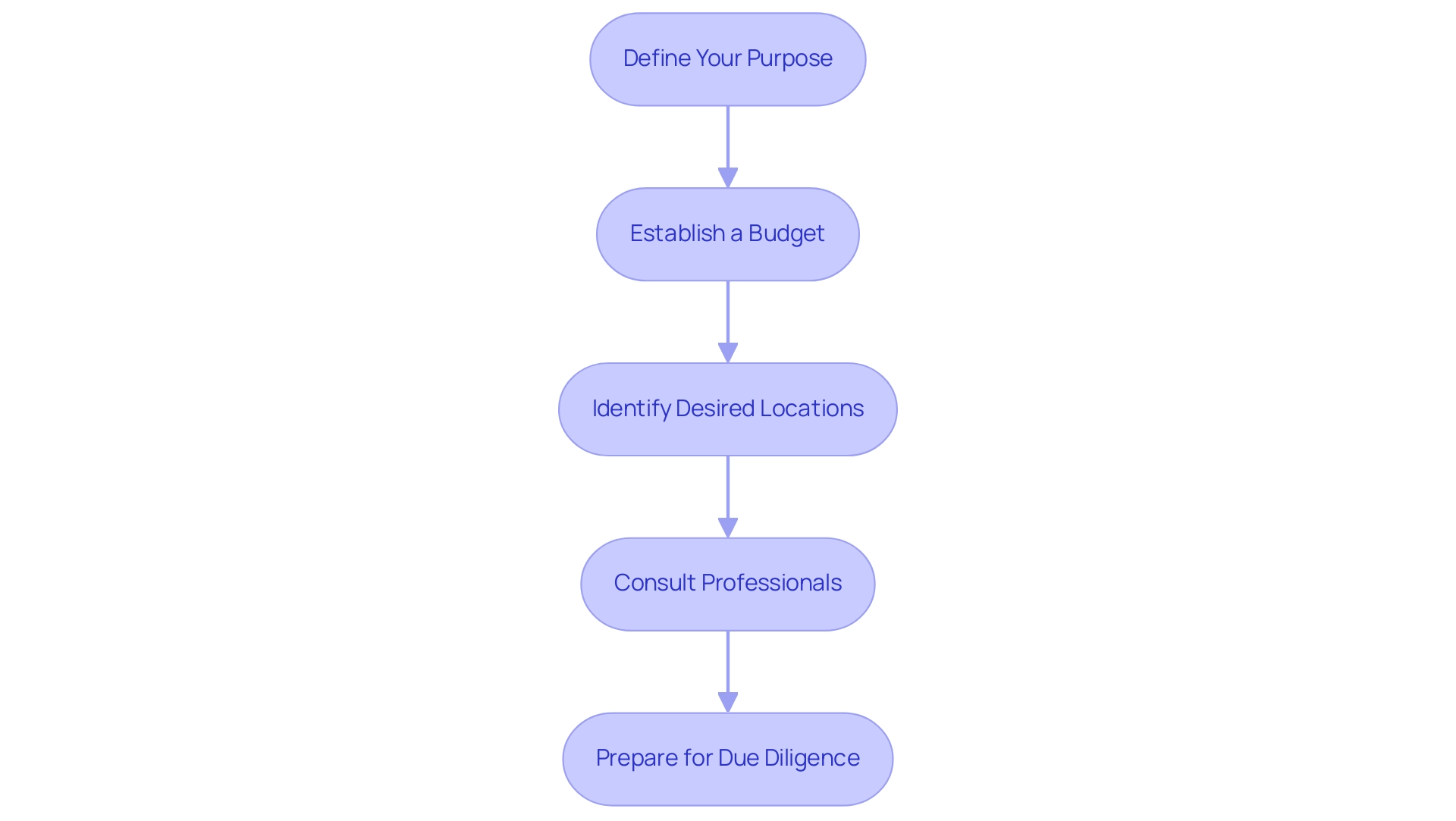
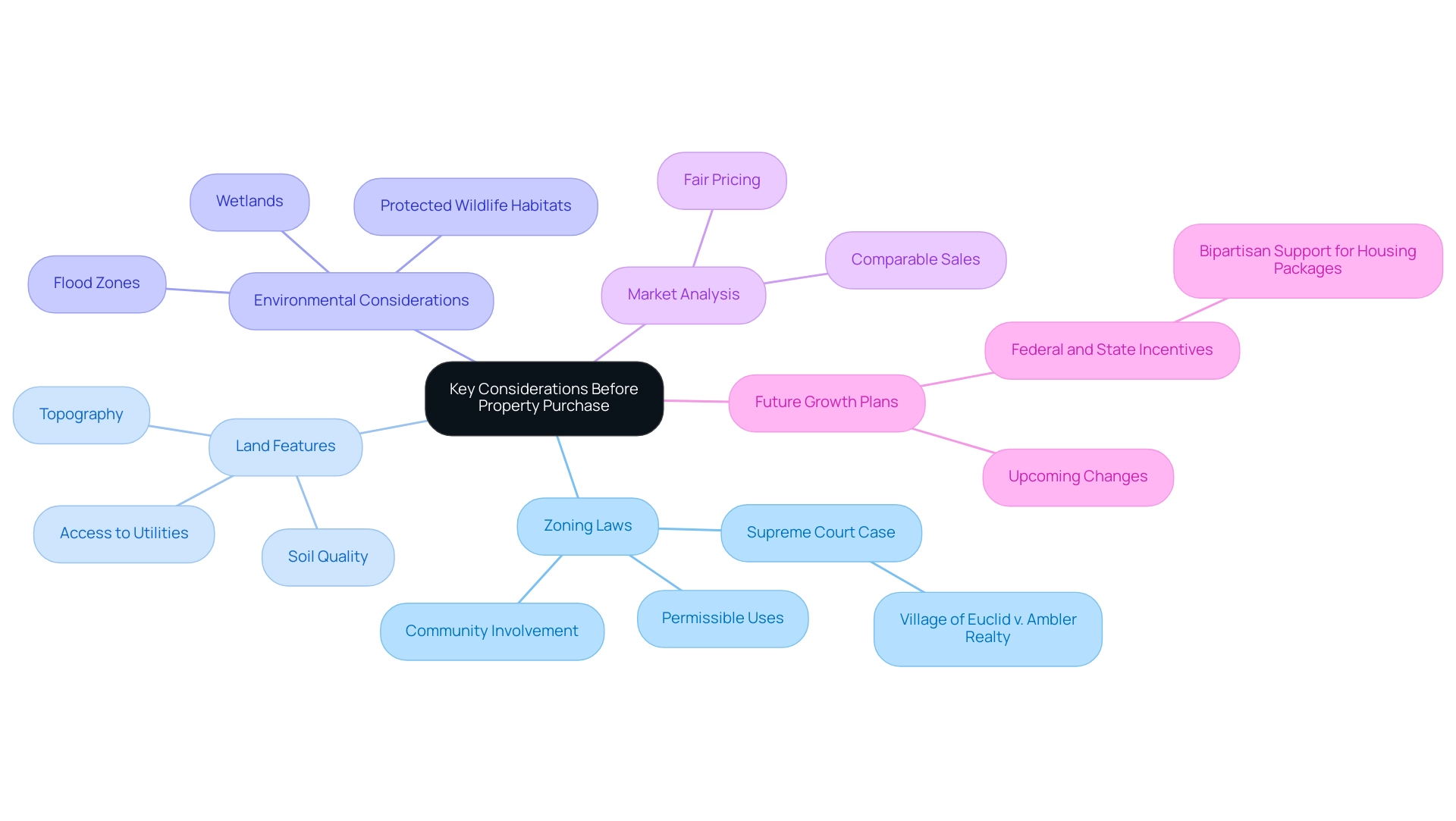
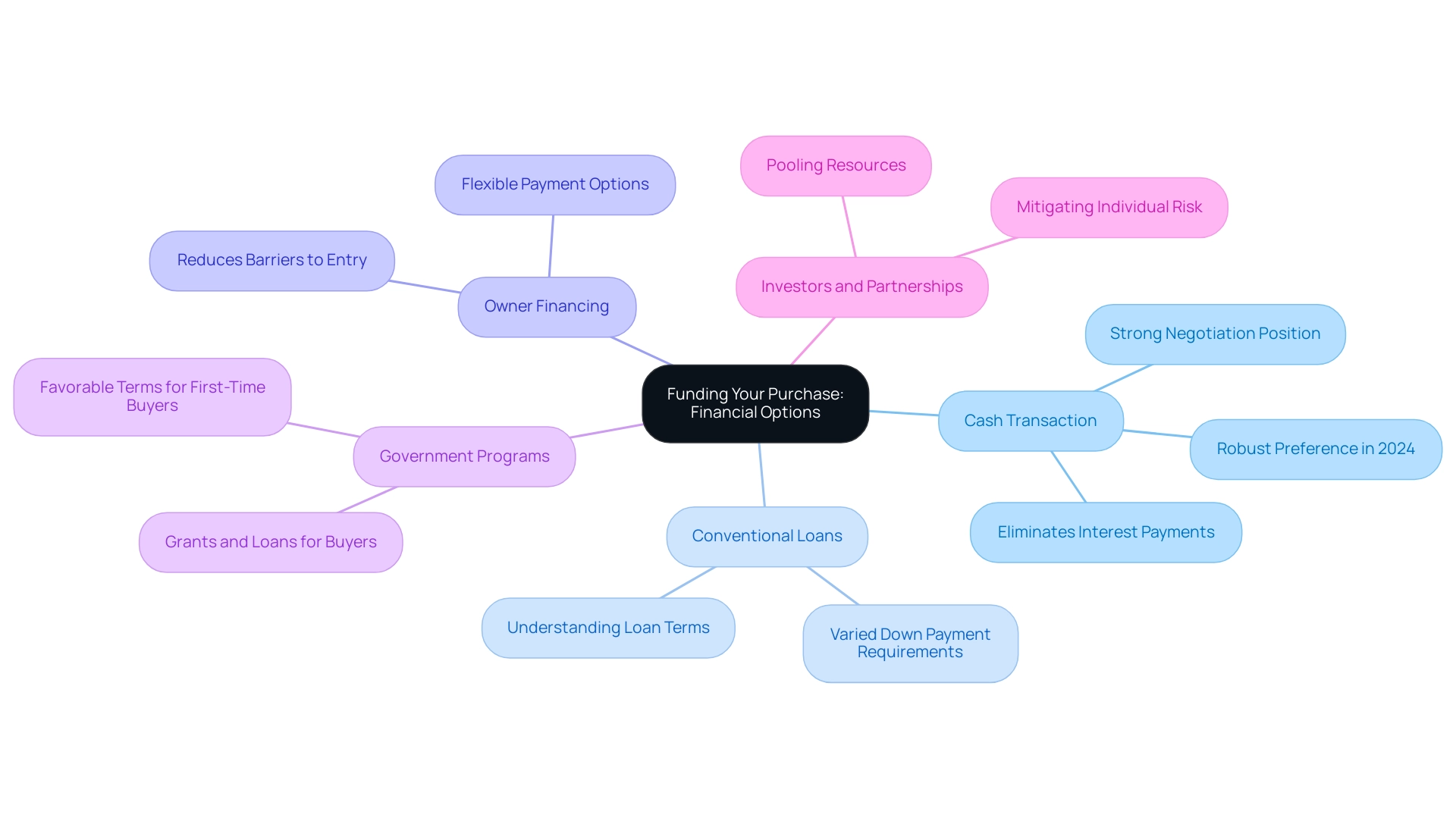
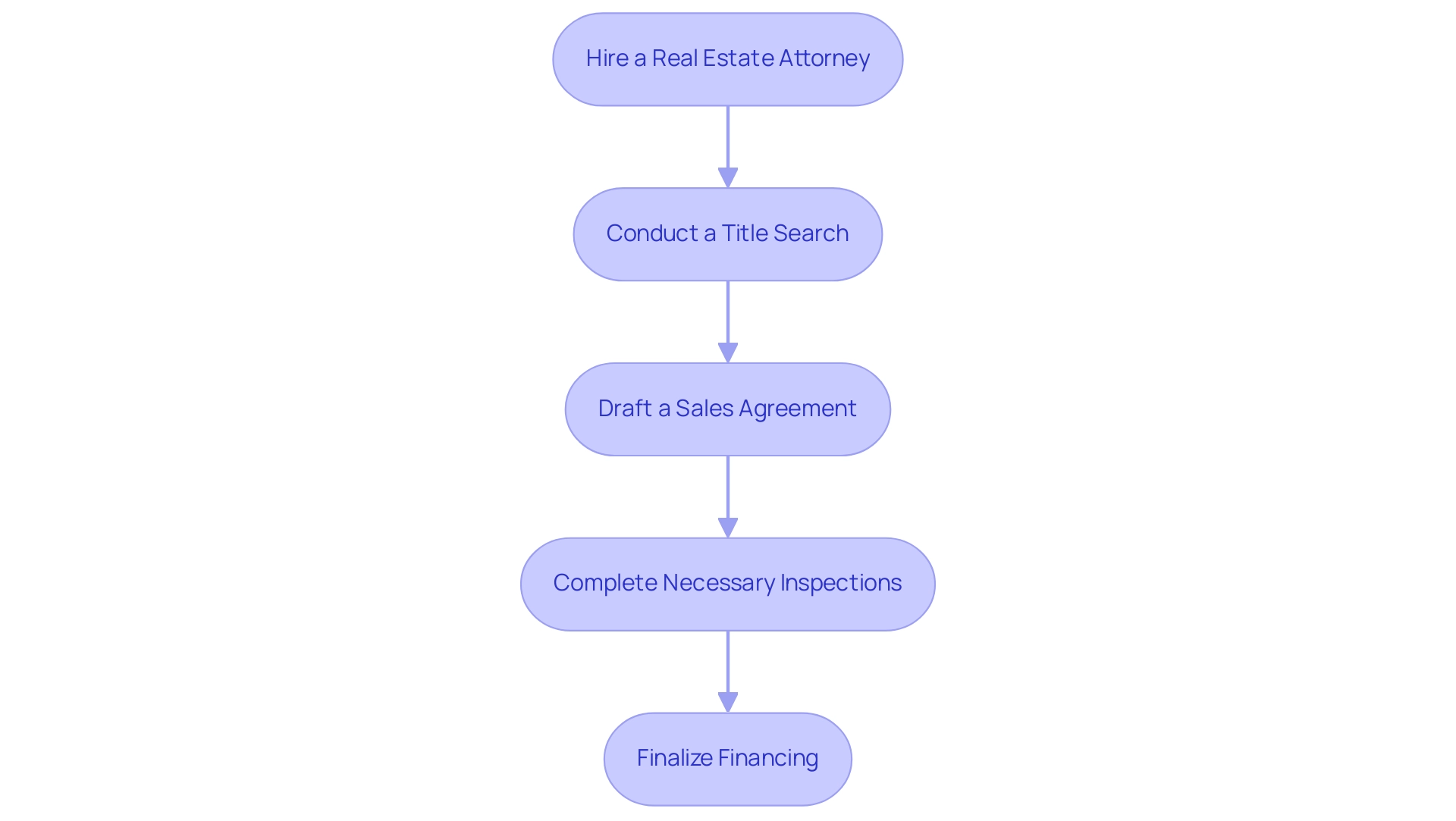
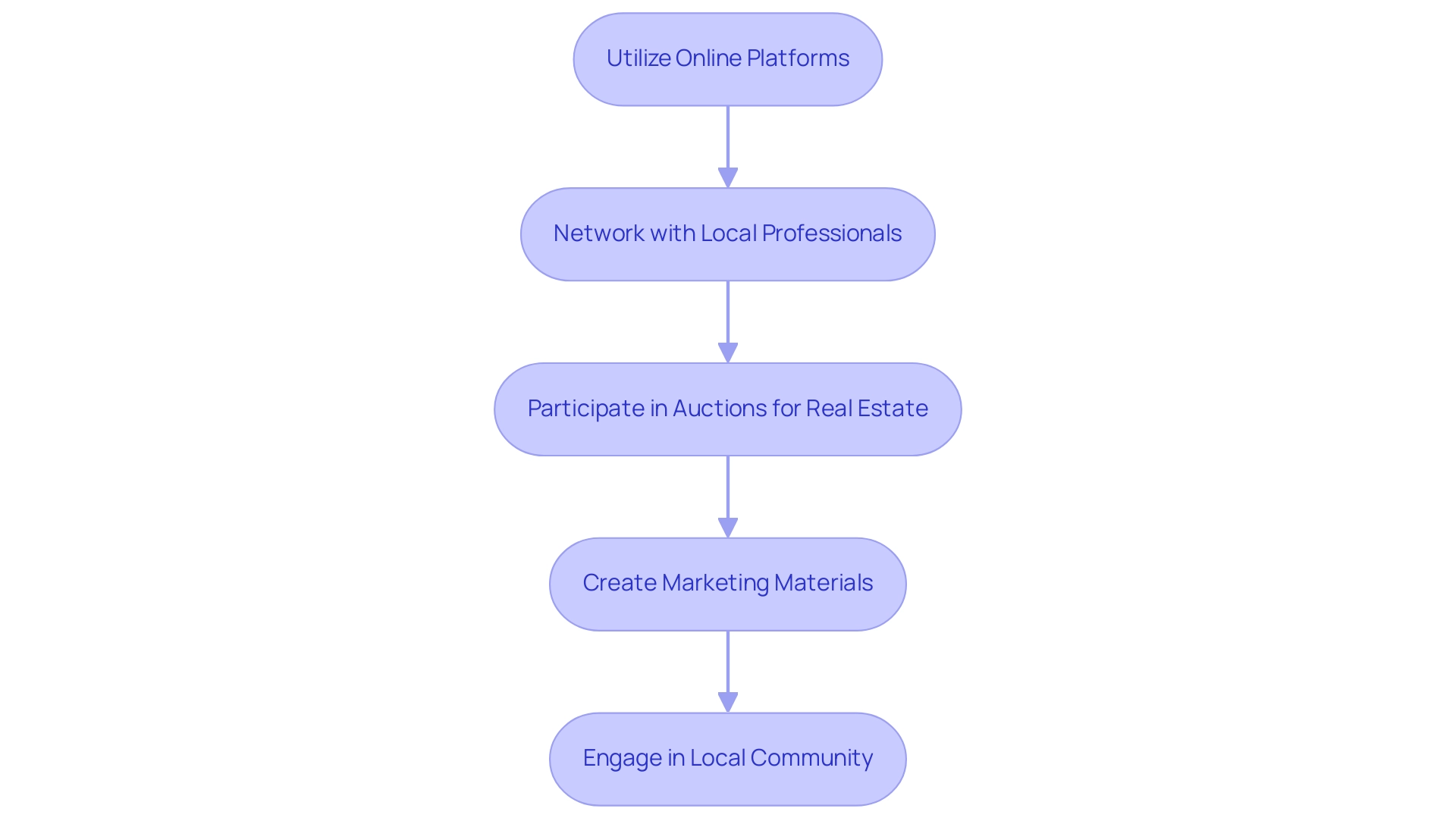
0 Comments